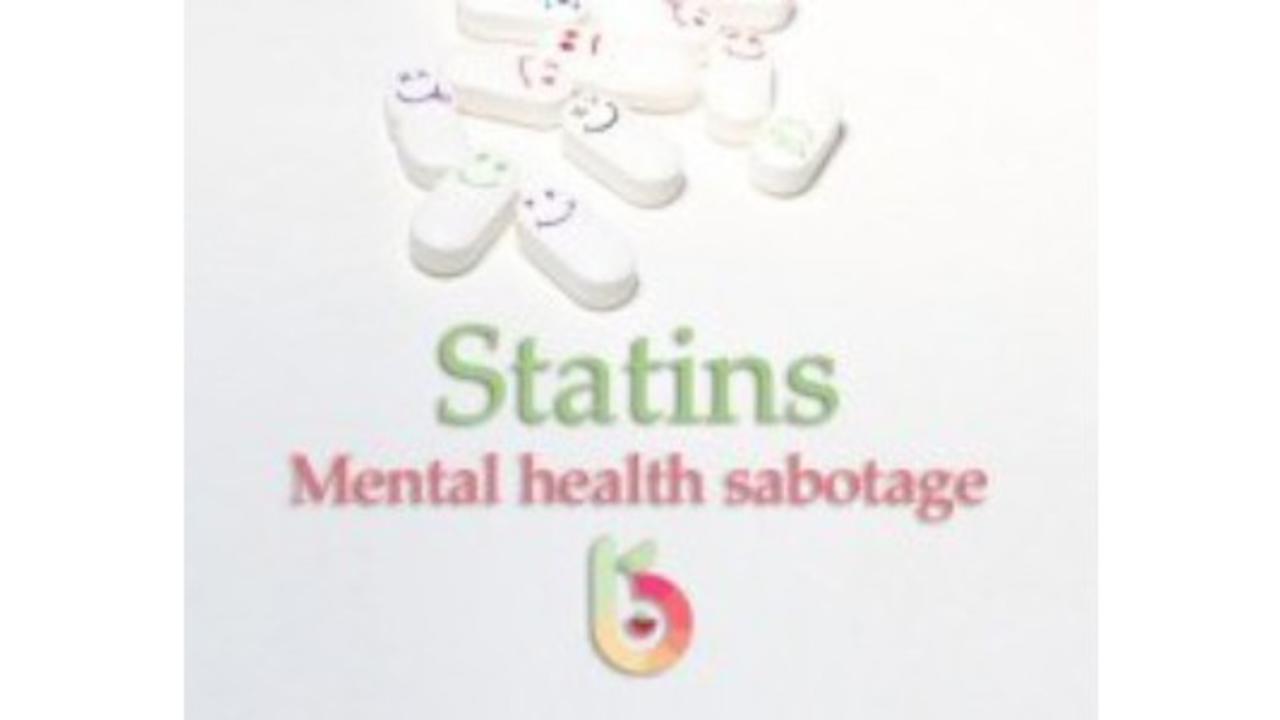Statins: Mental Health Sabotage

A new review article called Neuropsychiatric Adverse Events Associated with Statins: Epidemiology, Pathophysiology, Prevention and Management discusses the state of the literature around the intersection between mental health and cholesterol control. Despite generally dismissing a strong signal for concerning psychiatric adverse events, the article seems to conclude the following:
- severe irritability, homicidal impulses, threats, road rage, depression and violence, paranoia, alienation, and antisocial behavior; cognitive and memory impairments; sleep disturbance; and sexual dysfunction have all been reported in case series and national registries of those taking statin medications. Sound like the laundry list of rapidly spoken side effects at the end of a drug commercial? To anyone with a history of or current psychiatric symptoms, the role of these now ubiquitous medications should be appreciated.
- The signal for lipophilic statins - simvastatin and atorvastatin - was stronger which makes mechanistic sense since these medications penetrate the brain and brain cholesterol deficiency has been implicated in bipolar, major depression, and schizophrenia.
They review the WHY of cholesterol's vital role in bodily functions:
Cholesterol is a compound endowed with pivotal biological functions, which include (1) being a substrate for biosynthesis of steroid hormones (e.g. testosterone, oestrogen, cortisol and vitamin D) and bile acids; (2) biophysical properties of cell membranes; (3) formation and Neuropsychiatric Adverse Events Associated with Statin maintenance of membrane lipid rafts (MLRs)—specialized membrane microdomains involved in several aspects of brain function, such as receptor expression and signalling, axon guidance, synaptic development and neurotransmission; (4) formation of myelin sheaths; and (5) transport of antioxidant compounds (e.g. vitamin E, carotenoids and coenzyme Q10) involved in energy production, cell function and defence against free radicals.
They also review the HOW of these medication's effects on behavior:
- They impair central nervous system cholesterol trafficking and availability
- They impair mitochondrial functioning which leads to decreased cellular energy and increased oxidative stress through interference with coenzyme Q10
- They lead to enhancement of arachadonic acid release from the cell membrane, which is associated with inflammatory signaling
- They decrease blood LDL levels leading to less cholesterol availability for hormone production including testosterone
- They lead to changes in dopamine and serotonin receptors as well as dysregulation of neurosteroids which interact with GABA receptors
I have discussed my concerns about the wrong-headed use of these "preventive" medications, particularly in perimenopausal women, in posts like this one, and feel strongly, that lifestyle medicine has demonstrated its efficacy in heart disease management, that cholesterol is an antiquated target, and that pharmaceutical products such as statins do more harm than good.
Read the article here.
Want to continue reading?
Enter your details below to read more and receive updates via email.









